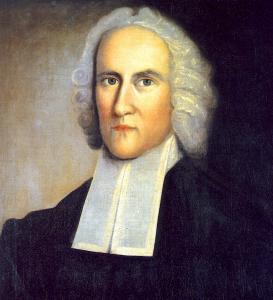 CT Editor-at-large Collin Hansen contributes a typically thoughtful piece, entitled “Mobile No More,” that wrestles with the question of mobility. Hansen wonders out loud in the article how the church should confront this issue, especially when it directly affects how urban churches can carry out ministry in a long-term sense (Photo: Triumphs for Life).
CT Editor-at-large Collin Hansen contributes a typically thoughtful piece, entitled “Mobile No More,” that wrestles with the question of mobility. Hansen wonders out loud in the article how the church should confront this issue, especially when it directly affects how urban churches can carry out ministry in a long-term sense (Photo: Triumphs for Life).
He cites one Boston pastor who has considered the issue at length:
“Stephen Um pastors in one such Boston neighborhood with CityLife Presbyterian Church. Visiting Chicago in April for the Gospel Coalition, Um spoke “On Ministry and Revolving Doors: Practical Challenges and Ideas for Ministry in a Mobile Society.” He argued that the Book of Acts has never been more directly applicable to the church’s situation before today. As seen in places like Boston, our world is globalized, fragmented, pluralistic, and urbanized. So was the Roman Empire in Jesus’ day, when multi-ethnic, globalized cities dominated the world. By God’s provision, the gospel spread along trade routes connecting Jews and Gentiles alike in these cities.”
According to Um, there are benefits to this societal trend (hampered as it in the current economic crisis):
“Yet churches must also recognize the realities of urban mobility. Church members working long hours won’t have much time to volunteer. And they will likely flee for the suburbs after they’ve married and started a family. Still, several opportunities have attracted pastors like Um to the city. Fragmented, transient neighborhoods are open to new churches. High-quality professionals demand the best from ministry leaders. And rootless residents appreciate time-tested liturgy in an environment where they can mix with neighbors.”
Hansen suggests that it may be necessary for Christians to forcibly settle themselves down in order to make a difference in major cities:
“So we see in the biblical narrative the call to settle in the Promised Land, the curse of exile, and the command to leave everything and spread the gospel around the world. Yet this time of transience is itself transient. Christians long for the day to come when the holy city, the new Jerusalem, will descend from heaven. Then, God will dwell with his people (Rev. 21:1–3). That Jerusalem will resemble today’s globalized cities with worshipers representing every tribe, language, people, and nation (Rev. 7:9). But if we never settle in the meantime, we may never invest our time, talents, and treasure into making our communities healthy and beautiful, the kinds of places that give the world a foretaste of this new Jerusalem to come.”
*****************
I’m inclined to agree with Hansen, though as a family man, I can say that I well understand the call of the ‘burbs. Furthermore, I want to be very careful in how I talk about suburban ministry. It can be easy to sneer at it, but in the end, sinners in the ‘burbs are no different than sinners in the city. Sure, city-dwellers may be more influential culturally, but depraved humanity needs a Savior wherever it resides.
So I would urge charity in this discussion even as I recognize why people do not stay in the city. It’s easier to raise kids in the suburbs. It is no bad thing, then, to move to the suburbs to do so. After all, raising children is a momentous task, one given us by God. Our primary concern, once we have children, needs to be their spiritual welfare.
However, if a family can carve out a healthy living situation in the city, I’m all for staying in a city for a long time. Hansen and Um are right: there is opportunity here, opportunity to influence cities in a long-term sense. There is great good to be reaped if our unbelieving neighbors see that we stick with and care for the city.
Not every Christian, individually or as a family, can do so. That’s fine. We shouldn’t condemn this, and we should pray for one another wherever we live that the gospel will go forth in power. But we can also recognize that it is good for us to rebel against the rootlessness, the needless restlessness, of our age (David Wells is very good on this point). It is good to plant roots and care for neighbors and share the gospel over months and years and decades. It is good to try to influence the city, knowing that much of what will become social culture flows from it.
There is an opportunity here, in the same way that there is an opportunity to do missions around the world. We cannot condemn or malign Christians who do not commit to full-term missions, just as we cannot condemn or malign Christians for living outside of the city (in fact, we need them to do so for the sake of gospel witness). However, we can celebrate this opportunity and call others to it, trusting that God will use our feeble efforts for the expansion of His kingdom and the glory of His name.











